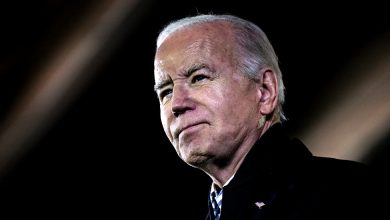Chinese Military Ship Docks in Sri Lanka Despite India’s Concerns

COLOMBO, Sri Lanka — After weeks of uncertainty, a Chinese surveillance vessel docked at a port in Sri Lanka on Tuesday, raising tensions between neighboring India and China as Indian leaders grow increasingly alarmed by Beijing’s expanding influence in the region.
The vessel, from a line of Yuan Wang ships that China’s military uses to track satellite and ballistic missile launches, is scheduled to remain for several days of refueling at the southern Hambantota port. China holds a 99-year lease on the port after Sri Lanka failed to pay back Chinese loans to build it.
For Sri Lanka, where the government is already struggling to pull the country out of virtual bankruptcy, the Chinese docking request deepened the island nation’s longstanding bind navigating two giant rivals.
China has been a long-term construction and development ally for Sri Lanka, granting large loans for projects extending well beyond the port. India has provided nearly $4 billion in assistance to Sri Lanka in recent months as the nation ran out of foreign reserves to pay for imports of basic goods.
In a sign of its difficult position, the Sri Lankan government had initially asked China to postpone the vessel’s arrival “until further consultations are made.” Then, late last week, it said it would allow the boat to dock.
Some analysts in India, where there were worries that the Chinese boat could be used to conduct surveillance of sites in the country’s south, saw Sri Lanka’s decision as a “diplomatic slap.”
Officials from India and the United States, two members of an alliance known as the Quad that is aimed at checking China’s rising influence in the region, had raised their concerns both in Colombo, the Sri Lankan capital, and in Cambodia during recent ministerial meetings of the Association of Southeast Asian Nations, Sri Lankan officials told The New York Times.
India’s concerns about the Chinese vessel added to tensions over Beijing’s encroachments on Indian land borders in the Himalayas, where the countries militaries have remained on a war footing for more than two years after deadly skirmishes. The two sides have failed to agree on disengagement of their troops in the Ladakh region despite 16 rounds of talks.
“The government carefully monitors any development having a bearing on India’s security and economic interests and takes all necessary measures to safeguard them,” Arindam Bagchi, the spokesman for India’s foreign ministry, said last month as questions surfaced about the Chinese ship.
Without naming India, China’s foreign ministry fired back, saying it was “completely unjustified for certain countries to cite the so-called security concerns to pressure Sri Lanka.”
Over the weeks that followed, Sri Lanka’s foreign ministry said, it engaged in “extensive consultations” with all parties involved. After the government granted China permission to dock, it played down the significance, noting that it had allowed naval ships from many countries, including the United States and Japan, to do the same.
In a sign of the Indian and Chinese dance for influence in the small island nation, India donated a Dornier maritime reconnaissance aircraft to Sri Lanka just a day before the ship’s arrival. Sri Lanka’s new president, Ranil Wickremesinghe, attended a ceremony marking the donation.
“The benefits from the growth of India, the benefits from the strength of India, are for all our friends and neighbors to share,” Gopal Baglay, India’s high commissioner to Colombo, said at the ceremony.
The next day, Qi Zhenhong, China’s ambassador to Sri Lanka, called the Chinese vessel’s docking “nothing special.”
“The scientific and research vessel visiting Hambantota is very natural and normal,” he said. “This is not the first time that this kind of vessel visited Sri Lanka.”
Asked whether the delay was a result of India’s objections, he said: “I don’t know. Maybe this is life.”
Skandha Gunasekara reported from Colombo, and Mujib Mashal from New Delhi.





